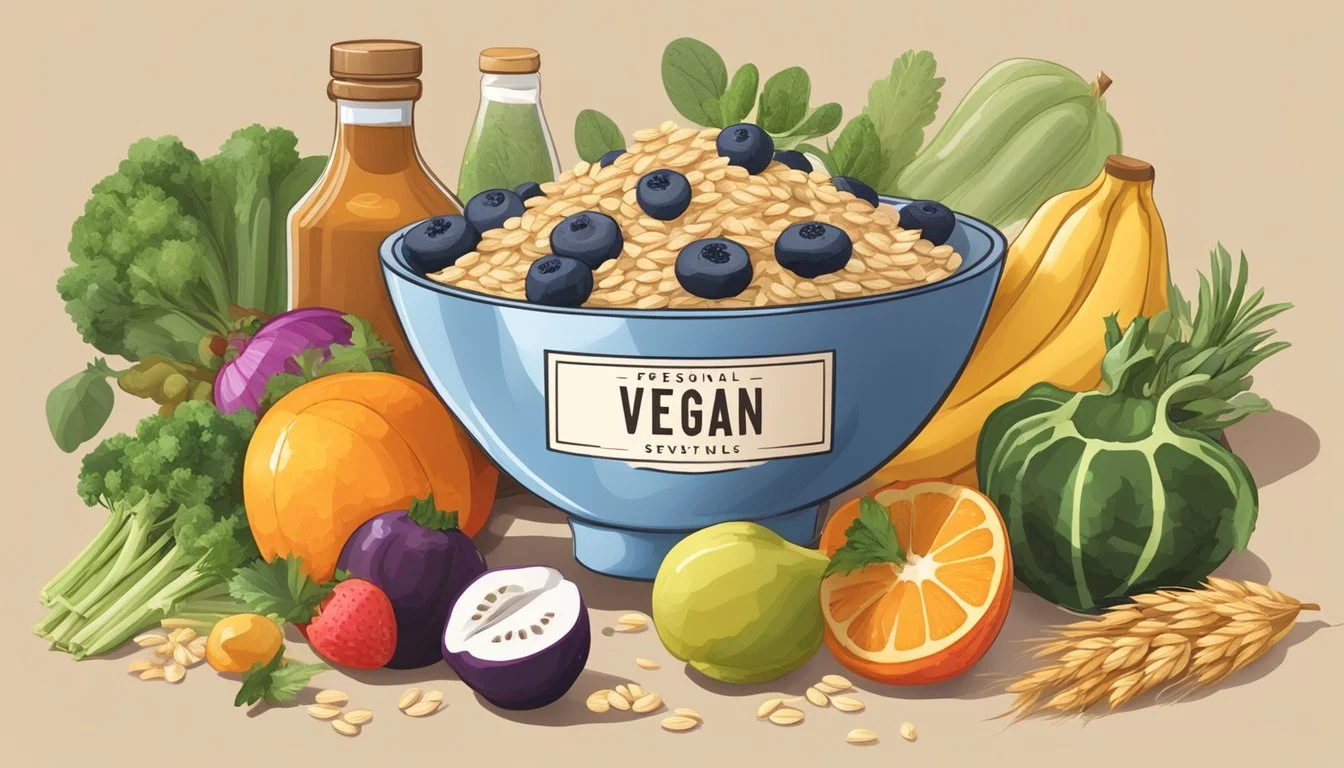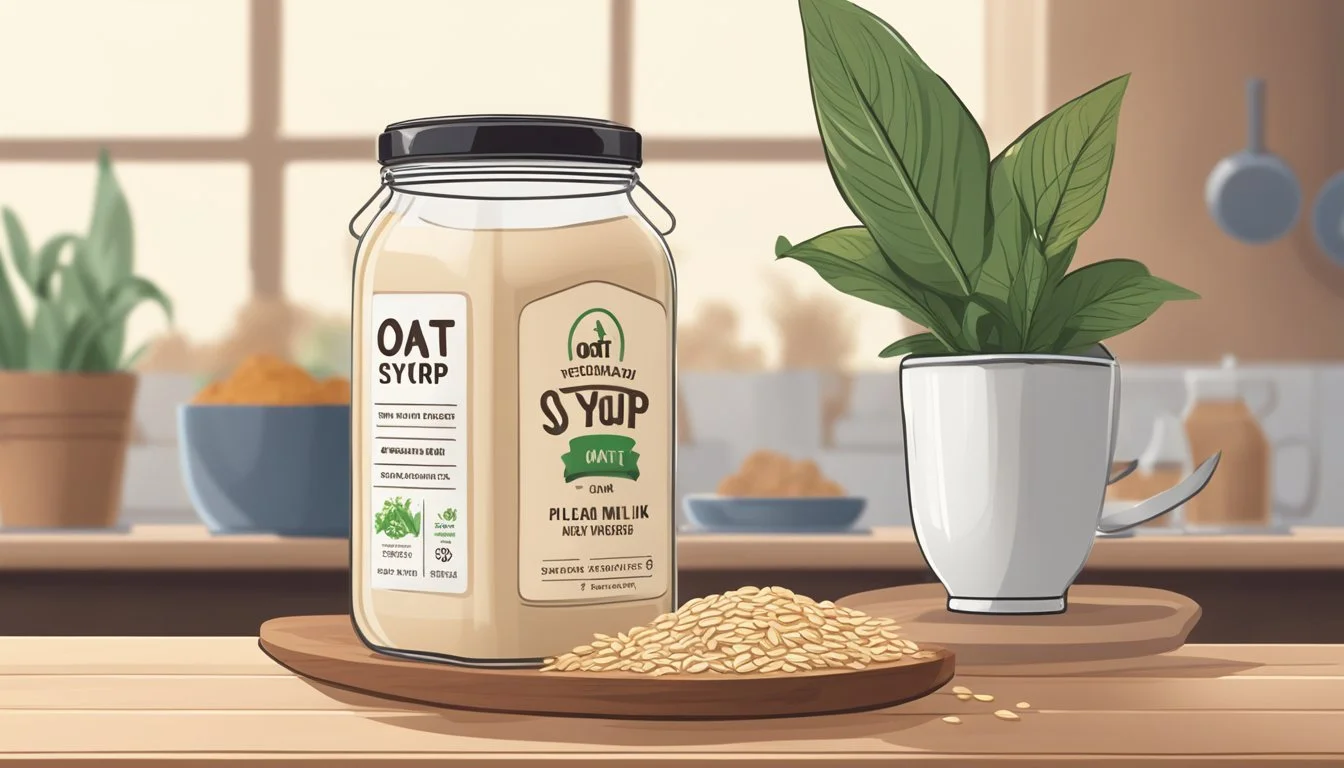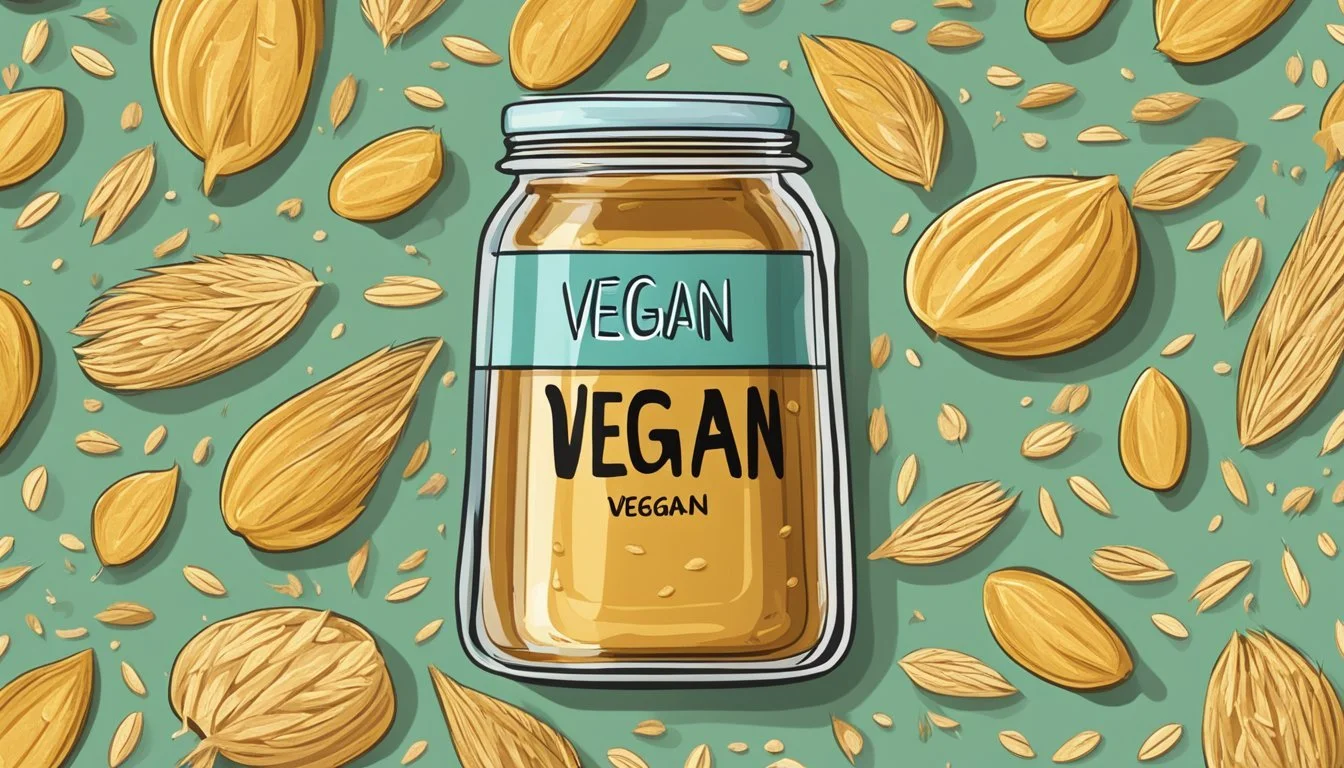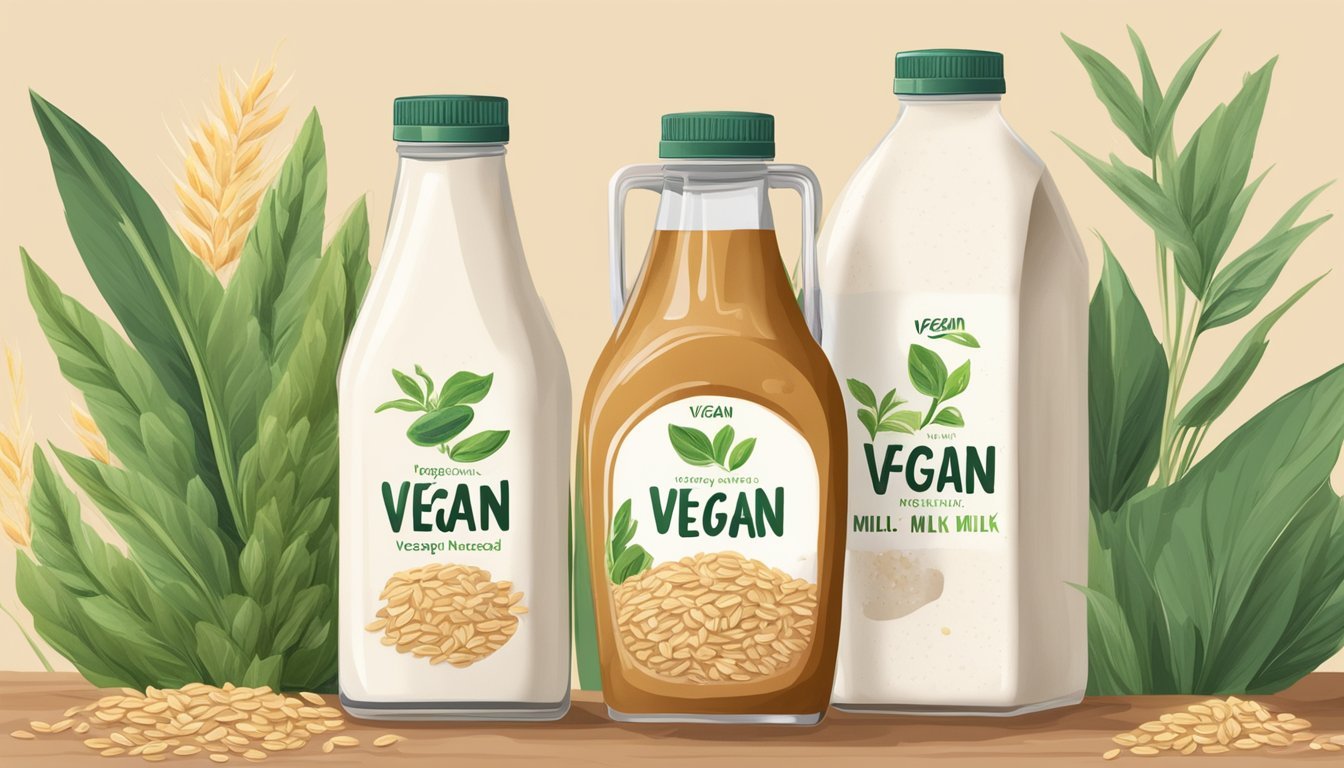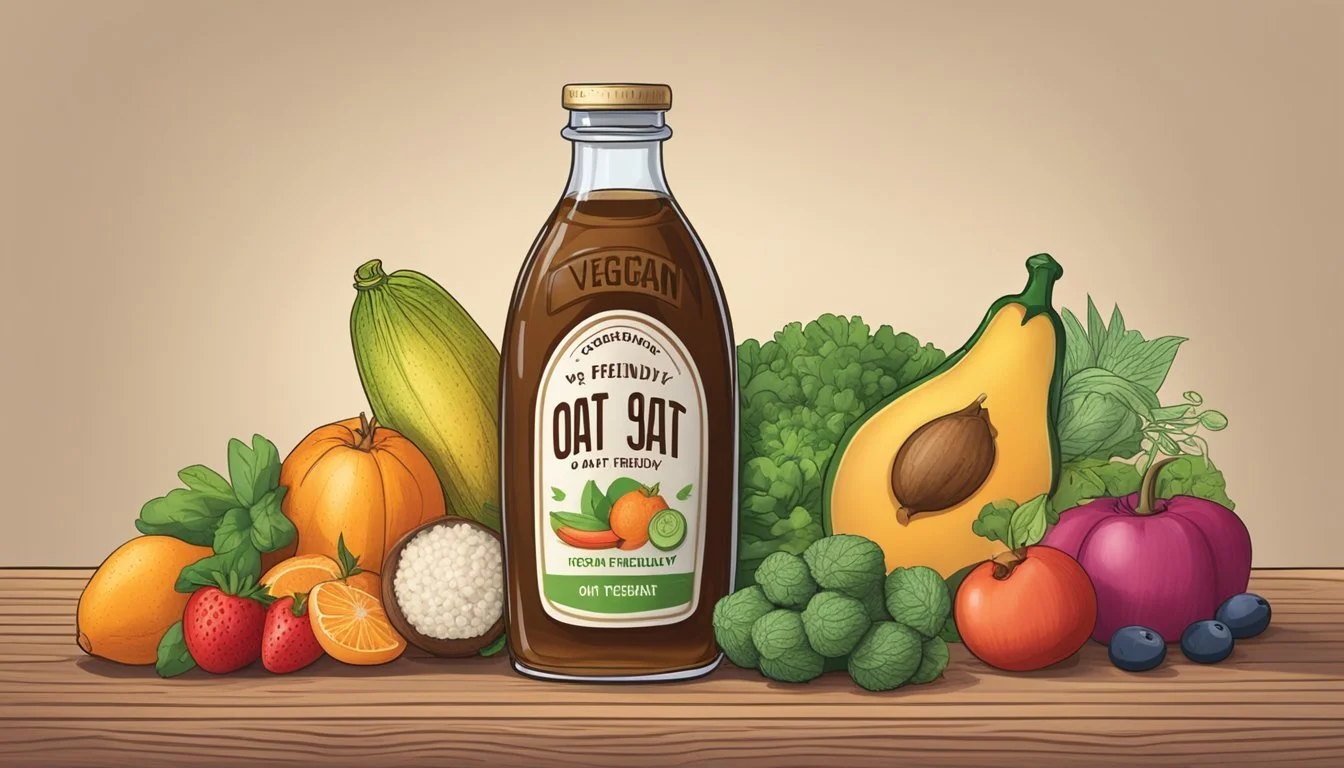Is Oat Syrup Vegan?
Unveiling the Facts About This Sweetener
Oat syrup, also known as oat extract or oat malt, is a natural sweetener derived from whole oat grains. Examining whether food products are vegan-friendly is crucial for those adhering to a plant-based lifestyle. In the case of oat syrup, it is generally considered vegan because it is made from oats, which are plant-based, and the process of converting oats into syrup typically does not involve animal byproducts.
However, as with many products that may appear vegan at first glance, it's important to consider the processing methods and additional ingredients that could affect its vegan status. For oat syrup, this means ensuring that during its production, it is not filtered using animal-derived products, a practice that is not common but can occur in the production of sugars and sweeteners. Additionally, some oat syrups may be mixed with honey or other non-vegan sweeteners to alter their flavor, which would make the final product unsuitable for vegans.
Consumers should check the labels for certifications and ingredients to confirm the product meets vegan standards. As a sweetener, oat syrup can be used in various recipes, such as baked goods and breakfast items, offering a rich, molasses-like flavor with the added benefit of some nutritious content inherent to oats, including fibers and minerals.
What Is Oat Syrup?
Oat syrup is a sweetener derived from whole oat grains. It serves as a plant-based alternative to other syrups, offering distinctive advantages and differences in its production and uses.
Origins and Production
Oat syrup starts with the selection of oats, which are inherently gluten-free grains. However, during the manufacturing process, there's a risk of cross-contamination with gluten unless specific gluten-free practices are followed. The production of oat syrup involves a process of extracting the natural sugars from the oats. This usually involves hydrolyzing the starches into simpler carbohydrates, thus creating a thick, sweet syrup.
Comparison to Other Syrups
When compared to syrups like maple syrup, oat syrup has its own unique flavor profile and texture. It may not have the signature taste of maple syrup but offers a milder, often nuttier flavor depending on how it's processed. Here's a brief comparison:
Flavor: Oat syrup provides a less pronounced sweetness compared to the more robust flavor of maple syrup.
Texture: It typically has a similar viscosity to other liquid sweeteners.
Usage: Both syrups can be used interchangeably in recipes, although the resulting flavor will vary.
Oat syrup can be a suitable ingredient for those seeking plant-based and potentially gluten-free sweetener options.
Nutritional Profile of Oat Syrup
Oat syrup, as a sweetener in the vegan diet, provides energy primarily through its carbohydrate content, with a unique nutritional spectrum compared to common sweeteners.
Macronutrient Breakdown
Carbohydrates: Oat syrup is rich in carbohydrates, mainly in the form of sugars. While it may have a lower sugar content than other syrups due to the enzymatic process that converts glucose to fructose, it is still a high-carbohydrate food.
Protein: There is minimal protein in oat syrup, making it not a significant source of this macronutrient.
Fat: Oat syrup contains negligible amounts of fat.
Fiber: As a processed liquid sweetener, oat syrup lacks dietary fiber.
Calories: The caloric value of oat syrup is high due to its carbohydrate concentration.
Vitamins and Minerals Content
Sodium: Oat syrup typically has a low sodium content.
Iron: It may provide small amounts of iron.
Potassium: There is some potassium present in oat syrup, which is beneficial for maintaining electrolyte balance.
Calcium: The calcium content in oat syrup is generally low.
Vitamin A: Oat syrup does not contain vitamin A.
Vitamin C: There is no significant amount of vitamin C in oat syrup.
Is Oat Syrup Vegan-Friendly?
When considering whether oat syrup is suitable for vegans, two main factors are crucial: the sourcing of ingredients and the processing methods. These factors determine the syrup's alignment with vegan standards which exclude all forms of animal exploitation and cruelty.
Sourcing of Ingredients
Oat syrup is typically derived from whole oat grains, which are plant-based and vegan by nature. However, the vegan-friendliness of the syrup can be compromised if the fertilizers used in growing oats are of animal origin or if the farming practices harm animals. It is critical for vegan consumers to verify the sourcing:
Plant-Based Ingredients: Confirm that all ingredients involved, including any added flavors or sweeteners, are derived from plants.
Organic Certification: Look for organic certification, as this often implies non-use of animal-based fertilizers.
Processing Methods
The purity of oat syrup as a vegan product is not only dependent on ingredients but also on the methods used to process the oats into syrup. During processing, one should ensure:
No Animal-Derived Chemicals: Verify that the processing does not involve animal-derived chemicals or enzymes.
Cross-Contamination: Watch out for shared facilities where the risk of cross-contamination with non-vegan products could occur.
To maintain its vegan-friendly status, oat syrup must be free from any animal product involvement, both in the way its raw ingredients are cultivated and how the final syrup is produced.
Health Impacts of Oat Syrup
Oat syrup, a sweetener derived from whole oat grains, offers distinct health impacts worth considering. It is used as an alternative to traditional sweeteners and provides several nutritional benefits while warranting certain considerations.
Benefits
Fiber Content: Oat syrup contains soluble fiber which can be beneficial for digestive health. Soluble fiber helps to slow digestion, which can lead to a more gradual increase in blood sugar levels, making it a potentially better option for maintaining blood sugar control.
Nutrient-Rich: Unlike refined sugars, oat syrup can offer some nutrients found in whole oats, such as minerals and vitamins, although in varying amounts depending on the processing method.
Considerations
Caloric Density: While oat syrup can be healthier than high-fructose corn syrup, it is still a calorie-dense sweetener and should be consumed in moderation to avoid excessive caloric intake.
Blood Sugar Impact: Individuals with diabetes or those watching their blood sugar levels should be mindful of the potential blood sugar spikes that any sweetener, including oat syrup, could cause.
Saturated Fat and Cholesterol: Oat syrup generally contains minimal saturated fats and no cholesterol, making it a suitable option for those managing their cholesterol levels. However, individuals should consider the overall balance of their diet.
It's important for consumers to consider both the benefits and considerations of oat syrup in the context of their personal health goals and dietary needs.
Culinary Uses of Oat Syrup
Oat syrup serves as a versatile sweetener in plant-based cooking, providing a rich flavor and smooth texture. It is particularly useful in sweetening breakfast dishes, baking desserts, and enhancing homemade recipes with a natural, dairy-free sweetness.
Sweetening Breakfast Foods
Oat syrup is an excellent sweetener for vegan breakfast foods. It can be drizzled over oatmeal, making it richer and adding depth to the flavor. When making pancakes, a few tablespoons of oat syrup in the batter can sweeten the dish without overpowering it. Additionally, as a topping, it complements fruit and berries, either poured over fresh fruit bowls or mixed with granola for a satisfying crunch. For a tropical twist, oat syrup can be combined with banana, coconut, and a dash of cinnamon to create a delightful breakfast treat.
Baking and Desserts
In vegan desserts, oat syrup can replace traditional sweeteners. Its consistency and sweetness level work well in baked oatmeal recipes, contributing to a moist, dense texture and a caramel-like undertone. Bakers can use it in various baked goods from cookies to cakes, enhancing flavor while keeping the recipe dairy-free. When paired with chocolate chips, nuts, and seeds, oat syrup helps to bind these ingredients together, adding both sweetness and structure to the dessert.
Homemade Recipes
Oat syrup can be a key component in do-it-yourself kitchen creations. Those with a food processor can make energy bars or balls by blending oats, oat syrup, and their choice of nuts and seeds; the syrup acts as a natural binder that holds together the ingredients. For those looking for substitutions, oat syrup serves as a healthier, plant-based alternative to honey or corn syrup in various sauces and dressings. It helps to utilize leftover fruits by turning them into sweet compotes or fruit toppings, where the natural sweetness of the syrup pairs well with the tanginess of the fruit, often heightened with a splash of vanilla for a rich aroma.
Common Questions About Oat Syrup
As a popular sweetener, oat syrup raises questions about allergy concerns, optimal storage practices, and substitution options. Understanding these can ensure safe and effective use in various culinary applications.
Allergy Concerns
Oat syrup is inherently gluten-free as it is derived from oats. However, those with celiac disease or gluten sensitivity should verify that the syrup is made with gluten-free oats to prevent contamination. Moreover, oat syrup is typically nut-free, making it a safe alternative for individuals with nut allergies. It's essential for consumers to always check the label for allergens or contact manufacturers directly if the allergen information is unclear.
Shelf Life and Storage
For best preservation, oat syrup should be stored in a cool, dark place to maintain its quality. It does not require refrigeration, but keeping it in the fridge can prolong its shelf life. After opening, oat syrup can generally last up to six months in the pantry and a year if stored in the freezer. Airtight containers are recommended for longer shelf life.
Substitution Tips
Oat syrup can serve as a vegan alternative to honey or caramel due to its thick consistency and sweet flavor profile. If a recipe requires a substitution for oat syrup, one can consider maple syrup, agave nectar, or molasses. These alternatives may vary in sweetness intensity and consistency, so adjustments should be made accordingly:
Maple syrup: sweeter, might require less volume
Agave nectar: similar in sweetness, suitable as a 1:1 substitution
Molasses: less sweet, more robust flavor, adjust to taste
When substituting, it's crucial to consider the impact on overall flavor and texture of the dish.
Finding Vegan Oat Syrup
Vegan oat syrup is a sweetener derived from oats, which can be a suitable choice for those on a plant-based diet. However, identifying vegan-friendly options involves checking for specific labels and certifications, and knowing which brands and products to look for.
Labels and Certifications
When searching for vegan oat syrup, one should look for products that clearly state "vegan" on their label. Certifications to look for include:
Vegan Action: A logo indicating the product is vegan and has not been tested on animals.
Certified Vegan by Vegan.org: This means the product is free of animal products or by-products and has not been tested on animals.
Plant-Based Certification: Indicates the syrup is made exclusively from plant ingredients.
Here is a simple checklist for labels:
Vegan Action Logo
Certified Vegan by Vegan.org
Plant-Based Certification
Brands and Products
Several brands offer oat syrups that are vegan-friendly. Here’s a concise list of vegan oat syrup brands and products:
Brand Product Vegan Certification Oatly Oat Syrup Golden Certified Vegan by Vegan.org Nature's Organic Oat Syrup Plant-Based Certification SyrupCo Pure Oat Syrup Vegan Action
To ensure the oat syrup is vegan, consumers are advised to check the ingredients list for any non-vegan additives. Additionally, reaching out to manufacturers for clarification on their product's status can provide peace of mind for those strictly adhering to a vegan lifestyle.
How to Make Your Own Oat Syrup
By creating your own oat syrup, you can ensure it's vegan and gluten-free while tailoring it to your sweetening preferences. It is a simple process that requires minimal ingredients and kitchen tools.
DIY Oat Syrup Recipe
To begin making homemade oat syrup, one must start with the base ingredients:
2 cups rolled oats (ensure they are gluten-free if necessary)
4 cups water
1 to 2 cups coconut sugar or other sweetener based on desired sweetness
Tools needed:
Blender or food processor
Fine mesh strainer or cheesecloth
Steps:
Combine the rolled oats and water in a high-speed blender or food processor. Blend for 1-2 minutes until the mixture is smooth.
Use a fine mesh strainer or cheesecloth to filter the blended oat mixture into a large bowl, removing the solid remnants.
Transfer the liquid into a saucepan, add coconut sugar, and bring to a low boil. Stir continuously to avoid burning.
Once boiling, reduce the heat to a simmer and allow the mixture to thicken for about 30 minutes, still stirring frequently.
After the mixture reaches a syrup-like consistency, remove it from heat and let it cool.
Store your homemade oat syrup in an airtight container in the refrigerator.
This recipe yields approximately 2-4 servings of oat syrup depending on the thickness desired.
Ingredient Variations
While the base recipe for oat syrup is straightforward, there are various ingredient variations one can employ to customize the flavor profile:
Sweeteners: Though coconut sugar is recommended, one can opt for maple syrup, agave nectar, or any vegan sweetener of choice.
Oats: While rolled oats are commonly used due to their higher surface area that aids in extraction, one could experiment with quick oats or steel-cut oats for different texture profiles.
Flavors: Incorporate cinnamon, vanilla extract, or a pinch of salt to enhance the flavor.
The inclusion of gluten-free oat flour can also be considered for a thicker syrup, and different types of non-dairy milk such as almond milk or soy milk can be used as a thinning agent if the syrup is too thick for one's preference. Always tailor the consistency and sweetness to the intended use, whether it's for pancakes, waffles, or as a sweetener in beverages. Remember that these variations can affect the final taste and texture of the oat syrup.
Conclusion
Oat syrup, derived from whole oat grains, is a plant-based sweetener and generally considered vegan. It integrates seamlessly into a vegan diet, offering a natural alternative to honey and other animal-derived sweeteners. With nutritional benefits that align with vegan values, such as the lack of cholesterol and the presence of essential minerals, oat syrup can be a favorable option for those monitoring their dietary choices closely.
In terms of culinary applications, oat syrup serves as a versatile ingredient. It can sweeten beverages, enhance the flavors of baked goods, and act as a topping for pancakes and waffles. Its subtle, distinctive taste and its ability to act as a binding agent make it a useful staple in vegan kitchens.
Individuals who follow a vegan lifestyle aim to avoid products that exploit or harm animals. Given that oat syrup is sourced directly from oats without the need for animal byproducts or involvement, it satisfies this criterion. Its vegan status may only come into question if the production process includes filters that utilize animal derivatives or if it's produced in facilities that handle non-vegan ingredients, which may raise concerns about cross-contamination.
When selecting an oat syrup, one should scrutinize the labeling and opt for products that clearly state their vegan certification. This ensures the sweetener adheres to strict vegan standards, making it a responsible choice for those dedicated to upholding their ethical and dietary principles.



